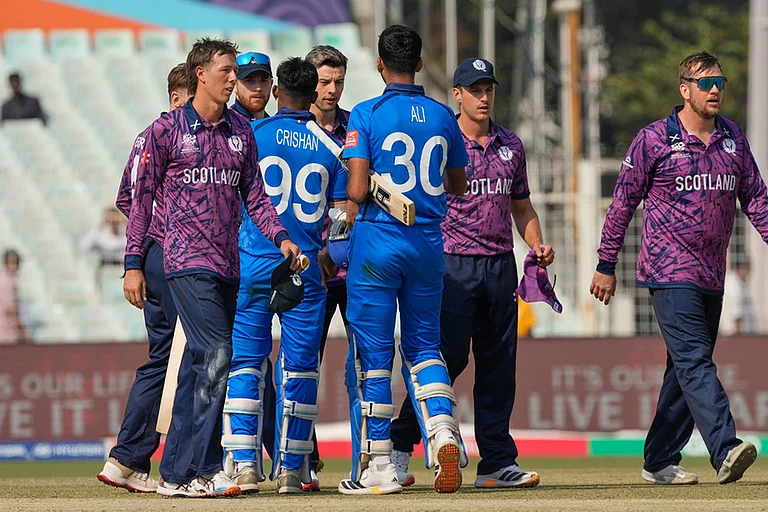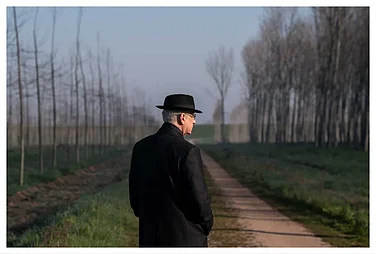But there is absolutely nothing in Sooni Taraporevalas script that can even remotely justify their presence in the cast. Their fate, in a way, sums up the film: Such a Long Journey is a sad tale of missed opportunities. Such wonderful source material, such a fascinating gallery of tangible characters, such a great cast of actors to play them but, unfortunately, in the end such a tedious cinematic journey: ponderous, heavy-handed, monotonous.
The film is such a far cry from Mistrys moving, masterly, multi-layered evocation of lower middle class Parsi life in early-70s Bombay. Production designer Nitin Desai does a decent enough job. He brings alive Bycullas Khodadad Buildingwhich the protagonist Gustad Noble (Roshan Seth) and his family share with a host of strange and not-so-strange inhabitantsdown to the very last prop and recreates Bombays streets of the pre-Maruti days with an unfailing eye for detail. But the sweeping vision and emotional force of Mistrys powerful text eludes Gunnarsson in the process of transference to celluloid. It is as if a bewitching, multi-hued tableau has been turned by some unskilled hand into a drab, unidimensional pastiche.
The plot, on the face of it, is simple enough: Parsi bank clerk Gustads well-ordered, if not materially comfortable, life threatens to spin out of control after he receives a parcel from an old friend, Major Jimmy Bilimoria (Shah). Although Gustad has spent much of his life amidst the smell of fresh, crisp currency notes, the parcel turns out to be a trifle too heavy for him. It contains
Rs 10 lakh in cash meant to be deposited in Gustads bank because, as the Majors Bombay point man Ghulam Mohammad (Puri) reveals, it is meant for the Bangladeshi freedom fighters. Gustad grudgingly does his friend the favour, but sure enough the mystery that shrouds the whole deal pushes the god-fearing, morally upright Gustad into a trough of self-doubt, of worries hed never known before. The situation is made worse by a series of unhappy developmentshis rebellious son, Sohrab (Vrijesh Hirjee) walks out on him, his little daughter falls ill and his wife, Dilnawaz (Soni Razdan) comes under the spell of the eccentric old lady (Pearl Padamsee) who lives upstairs.
Its 1971. Gustads inner struggle plays out against the external backdrop of tumultuous political events. Indira Gandhis firmly in the saddle and her iron hand has begun to make its presence felt; Indias on the brink of war with Pakistan and Bombay is witness to mounting social tensions. But Gunnarssons screen rendition of a turbulent point in Indias history is riddled with disjunctions. Neither the drama of an individual grappling with a murky moral universe nor the sense of foreboding created by the impending war are captured quite with the felicity that distinguishes Mistrys celebrated novel.
But if Such a Long Journey fails to move you, the fault cannot be laid at Seths door, nor at Hirjees. Seth, an actor whos rarely received the recognition he deserves, gets under Gustad Nobles skin and deep into his heart to come up with a performance remarkable as much for its control as for its sustained intelligence. Gustad believes "only women and weak men shed tears". But when, in the films penultimate sequence, he breaks down while praying over the body of the mad man hes developed an undefined bond with, Seth carries the film to what proves to be its acme. By far.
Hirjee, playing the elder son who cannot understand the demands of a doting father, matches Seth scene for scene and is at the centre of the films rare flashes of conviction. Sadly, several of the films plot strands, especially the one that revolves around Bilimoria (a character modelled on the real-life former army officer Rustom Sohrab Nagarwala, who supposedly called up a chief cashier of a bank, faking the voice of Indira Gandhi, and withdrew Rs 60 lakh) are lost in a penumbral haze. Such a waste!


























